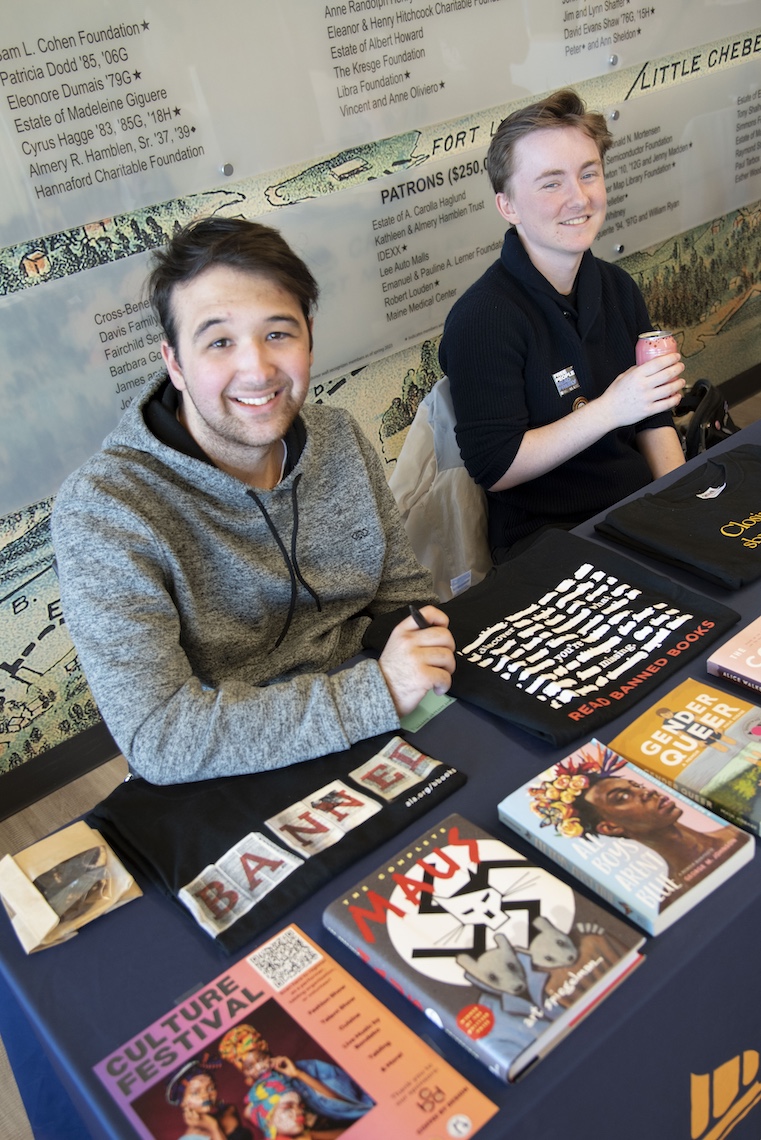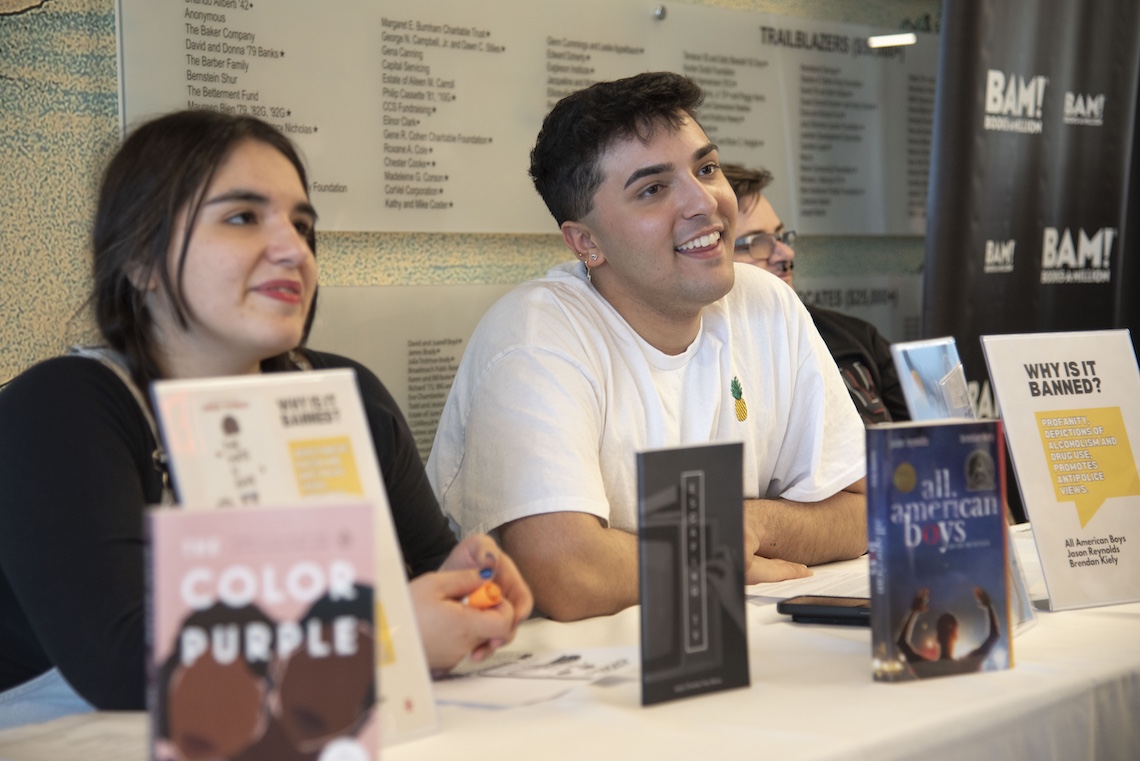
The halls of the McGoldrick Center at the University of Southern Maine in Portland were filled with contraband. While that label doesn’t apply at USM, other academic institutions and libraries have used it to describe the titles on display at the Banned Book Fair.
Intercultural Student Affairs (ISA) hosted the event on March 19 with support from USM Libraries and the Recovery Oriented Campus Center. The books were spread across several tables to be skimmed, purchased, and discussed. Seated in a high-traffic area between the elevator and stairway, Jacob Beaulieu was happy to share his thoughts on the books at his table.
Beaulieu is a junior in the Political Science program. Between classes, he works with ISA to stage events across campus. The fair was Beaulieu’s idea based on a suggestion from his mother. She’s a career educator who raised her son to love books. He wanted to take a stand against the book bans he’s seen in national news reports.
“This will only breed ignorance and hate, as opposed to any greater understanding, if you ban literature instead of promoting it,” Beaulieu said.
Data collected by the American Library Association (ALA) shows 9,021 titles were targeted for censorship nationwide in 2023, with challenges to unique titles up by 65% over the previous year. During the same timeframe, 60 titles faced challenges in Maine alone.

Nearly half of the challenged books tracked by ALA dealt with LGBTQ themes or issues of race. The top three most challenged titles of 2022 were “Gender Queer” by Maia Kobabe, “All Boys Aren’t Blue” by George M. Johnson, and “The Bluest Eye” by Toni Morrison. ALA will release an updated list reflecting 2023 data on Right to Read Day, which falls on April 8.
“Maus” by Art Spiegelman is a perennial qualifier for the ALA list, and it’s one of Beaulieu’s favorite books. It’s a graphic novel about the experiences Spiegelman’s family endured during the Holocaust. Jews are depicted as mice, and the Nazis are cats. The book’s challengers cite violence, harsh language, and nudity. Beaulieu argues that the darkness is essential to its message.
“Reading is how we build empathy for the rest of the world,” Beaulieu said. “The Holocaust is always something you hear about in history, and you get a very analytical view of it. ‘Maus’ feels a little more emotional. You get to kind of see just how dreadful it was for the characters.”
Visitors who were inspired by Beaulieu’s defense could buy a copy of “Maus” and dozens of other titles at a nearby table staffed by workers from the Books-A-Million retail chain. The library also offers readers a free option. There to field their question was USM Instruction and Outreach Librarian Megan Mac Gregor. She’s seen how books that some people consider offensive can be uplifting for someone else.
“Maybe you aren’t a survivor, but maybe somebody else is. And for them, that book is really helpful and powerful,” Mac Gregor said. “Those books let you see into the window of a different person.”
Challenges are uncommon at USM’s libraries, which serve a primarily adult clientele who often require specialized material for research. But Mac Gregor hears from her colleagues at municipal libraries where the pressure to remove books can be intense.

Elementary and high school libraries used to be the main battleground for book challenges, but that is changing. According to the ALA, public libraries saw a 92% increase in the number of titles that were challenged from 2022 to 2023. Forty-six percent of all challenges in 2023 were aimed at public libraries.
By raising awareness about the increase in censorship, the Banned Book Fair attempted to build a community of readers who feel differently. Mac Gregor hopes that guests who visited the fair will continue to show their support for open access to books.
“Go to your town meetings, go to your school boards,” Mac Gregor said. “Support the budgets that are included in your town budgets for your local library as well as your school libraries. Ask people to get a school librarian, they’re kind of a dying breed. And get a library card to your local library.”

